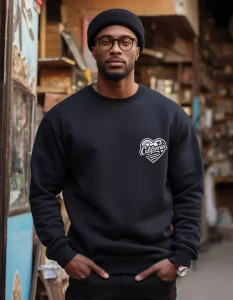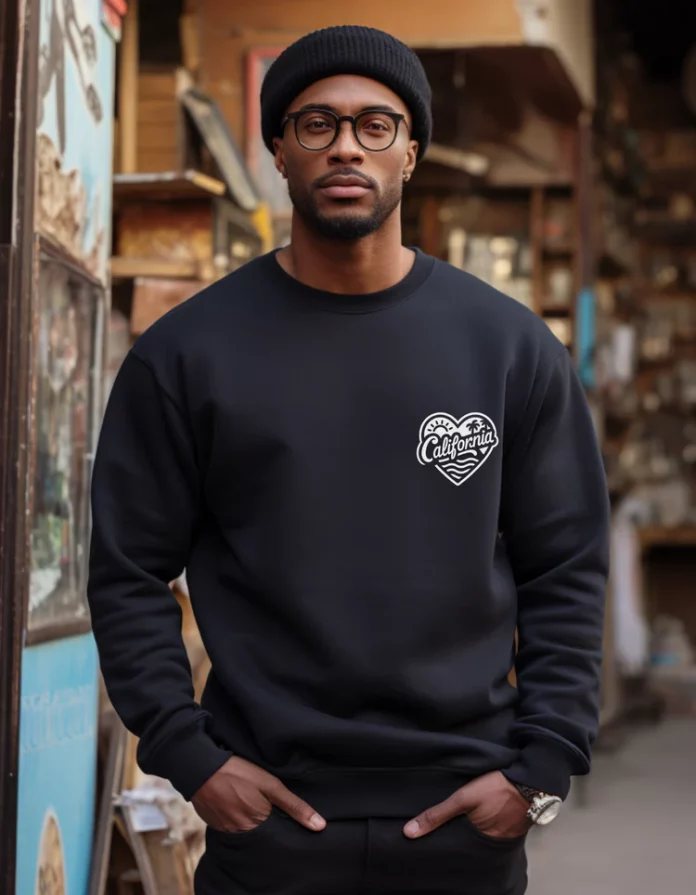Hip hop clothing has transcended mere attire to become a cultural phenomenon that influences fashion trends globally. Originating from the streets of New York City in the 1970s, hip hop fashion has evolved into a multi-billion dollar industry, reflecting the spirit and creativity of the genre itself. From baggy jeans to flashy jewelry, hip hop clothing embodies self-expression, individuality, and authenticity.

Historical Evolution of Hip Hop Fashion
Origins and Influences
Hip hop fashion emerged as a reflection of the socio-economic conditions prevalent in urban African American communities. It drew inspiration from diverse sources such as African tribal attire, jazz culture, and the rebellious spirit of youth.
Early Hip Hop Fashion Trends
In its nascent stages, hip hop fashion was characterized by elements like tracksuits, Kangol hats, and Adidas sneakers. It served as a means of identity and solidarity among marginalized youth, expressing defiance against mainstream norms.
Key Elements of Hip Hop Clothing
Baggy Clothing
One of the defining features of hip hop clothing is its emphasis on loose-fitting garments. Baggy jeans, oversized t-shirts, and hoodies became synonymous with the hip hop aesthetic, symbolizing comfort and freedom of movement.
Sneakers
Sneakers hold a special place in hip hop culture, with brands like Nike, Adidas, and Reebok dominating the scene. Sneakerheads avidly collect limited edition releases, viewing footwear as a form of self-expression and status symbol.
Baseball Caps
The ubiquitous baseball cap became an integral part of hip hop fashion, often worn sideways or backwards as a signature style. From snapbacks to fitted caps, headwear adds flair and personality to hip hop outfits.
Streetwear Culture and its Impact on Hip Hop Fashion
Streetwear emerged as a subculture closely intertwined with hip hop, emphasizing casual, comfortable clothing with urban influences. Brands like Supreme, Off-White, and BAPE blurred the lines between fashion, art, and lifestyle, catering to a diverse audience of fashion enthusiasts.
Designer Brands in Hip Hop Clothing
While streetwear brands dominate the hip hop scene, luxury designers have also made their mark. Collaborations between high-end fashion houses and hip hop artists have led to iconic collections, bridging the gap between street culture and haute couture.
Influence of Hip Hop Fashion on Mainstream Culture
Hip hop fashion has permeated mainstream culture, influencing runway trends and shaping the wardrobes of celebrities worldwide. From fashion magazines to red carpet events, hip hop’s sartorial influence continues to reverberate across various industries.
Gender Fluidity in Hip Hop Fashion
Hip hop clothing has challenged traditional notions of gender, embracing diversity and inclusivity. Artists like Young Thug and Jaden Smith have pushed boundaries with their fashion choices, blurring the lines between masculinity and femininity.
Sustainability in Hip Hop Clothing
As environmental awareness grows, sustainable practices are gaining traction within the hip hop fashion community. Brands are adopting eco-friendly materials and ethical production methods, aligning with the values of socially conscious consumers.
Notable Figures in Hip Hop Fashion
Designers
Visionary designers like Virgil Abloh, Dapper Dan, and Karl Kani have left an indelible mark on hip hop fashion, shaping trends and redefining luxury for a new generation.
Artists
Hip hop artists have become style icons in their own right, influencing fashion with their music videos, performances, and public appearances. From Kanye West to Rihanna, musicians wield significant influence over trends and consumer behavior.
Rise of Online Platforms for Hip Hop Clothing
The digital age has revolutionized the way hip hop clothing is bought and sold, with online platforms offering unprecedented access to global markets. E-commerce sites and social media platforms serve as virtual storefronts, connecting consumers with a vast array of styles and brands.
The Future of Hip Hop Fashion
As hip hop continues to evolve, so too will its fashion. With an emphasis on authenticity and innovation, hip hop clothing will remain at the forefront of cultural expression, adapting to the changing tastes and values of future generations.
Conclusion
Hip hop clothing is more than just garments; it’s a cultural movement that embodies creativity, self-expression, and resilience. From its humble beginnings in the streets of New York City to its global influence today, hip hop fashion continues to push boundaries and defy conventions, shaping the way we dress and perceive style.
FAQs (Frequently Asked Questions)
- What defines hip hop clothing? Hip hop clothing is characterized by elements such as baggy attire, sneakers, and urban-inspired accessories, reflecting the culture and ethos of the hip hop movement.
- How has hip hop fashion evolved over the years? Hip hop fashion has evolved from its early days of tracksuits and Kangol hats to encompass a diverse range of styles, incorporating influences from streetwear, luxury fashion, and global trends.
- Which designers have made significant contributions to hip hop fashion? Designers like Virgil Abloh, Dapper Dan, and Karl Kani are revered for their contributions to hip hop fashion, blending street culture with high-end aesthetics.
- Why is sustainability becoming increasingly important in hip hop clothing? With growing awareness of environmental issues, consumers are demanding more sustainable options in fashion, prompting hip hop brands to adopt eco-friendly practices and materials.
- How has hip hop fashion influenced mainstream culture? Hip hop fashion has permeated mainstream culture through its impact on runway trends, celebrity style, and popular media, shaping the way people dress and express themselves.




















